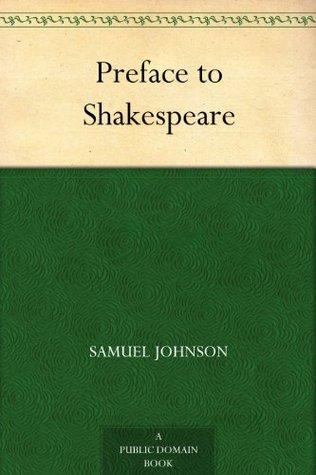More on this book
Community
Kindle Notes & Highlights
That praises are without reason lavished on the dead, and that the honours due only to excellence are paid to antiquity, is a complaint likely to be always continued by those, who, being able to add nothing to truth, hope for eminence from the heresies of paradox; or those, who, being forced by disappointment upon consolatory expedients, are willing to hope from posterity what the present age refuses, and flatter themselves that the regard which is yet denied by envy, will be at last bestowed by time.
While an authour is yet living we estimate his powers by his worst performance, and when he is dead we rate them by his best.
Nothing can please many, and please long, but just representations of general nature.
Shakespeare is above all writers, at least above all modern writers, the poet of nature; the poet that holds up to his readers a faithful mirrour of manners and of life.
In the writings of other poets a character is too often an individual; in those of Shakespeare it is commonly a species.
Shakespeare has no heroes; his scenes are occupied only by men, who act and speak as the reader thinks that he should himself have spoken or acted on the same occasion: Even where the agency is supernatural the dialogue is level with life.
Shakespeare's plays are not in the rigorous and critical sense either tragedies or comedies, but compositions of a distinct kind;
nature. The end of writing is to instruct; the end of poetry is to instruct by pleasing.
He sacrifices virtue to convenience, and is so much more careful to please than to instruct, that he seems to write without any moral purpose.
He had no regard to distinction of time or place, but gives to one age or nation, without scruple, the customs, institutions, and opinions of another, at the expence not only of likelihood, but of possibility.
Imitations produce pain or pleasure, not because they are mistaken for realities, but because they bring realities to mind.
that will understand Shakespeare, must not be content to study him in the closet, he must look for his meaning sometimes among the sports of the field, and sometimes among the manufactures of the shop.
So willingly does the world support those who solicite favour, against those who command reverence; and so easily is he praised, whom no man can envy.
the reading is right, which requires many words to prove it wrong;


